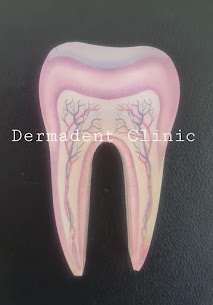Root canal treatment, also known as endodontic therapy, is a dental procedure used to treat infection or damage to the innermost part of the tooth, known as the dental pulp. The dental pulp is a soft tissue containing nerves, blood vessels, and connective tissue that helps the tooth develop during its growth stage. Root canal treatment becomes necessary when the dental pulp becomes infected or inflamed due to various reasons, including severe tooth decay, deep cavities, tooth trauma, cracks, or repeated dental procedures on the tooth. If left untreated, the infection can spread to the surrounding tissues, leading to abscess formation and potentially causing severe pain and swelling. The procedure typically involves the following steps: X-ray: To determine the extent of the infection and assess the root canal’s shape and condition. Local anesthesia: To numb the tooth and surrounding area, ensuring the patient’s comfort during the procedure. Access opening: The dentist creates a small opening in the tooth’s crown to access the infected pulp chamber and root canals. Cleaning and shaping: The infected or damaged pulp tissue is removed from the pulp chamber and root canals using specialized instruments. The canals are then cleaned, disinfected, and shaped to prepare them for filling. Filling: After thorough cleaning and shaping, the root canals are filled with a biocompatible material called gutta-percha to seal them and prevent bacteria from re-entering.


